Adobe Acrobat is an application developed by Adobe Inc. for users to view, create, and edit PDF files. PDF stands for Portable Document Format, and it is one of the most common document formats in the world. Many individuals and organizations would use Adobe Acrobat to make resumes, brochures, and specifications in PDF form.
Can Adobe Acrobat Files Be Recovered?
If you have closed Adobe Acrobat without saving or going through a software crash while editing a PDF file, you may want to know if it is recoverable. Luckily, the answer is Yes. You can try to recover unsaved Adobe Acrobat files with the Adobe Autosave feature. You can also recover PDF files through Adobe apps and EaseUS Data Recovery Wizard if you have saved them before but lost them due to a misoperation or virus attack. Please keep reading and learn more about PDF file recovery.
1. How to Recover Unsaved Adobe Acrobat Files
To prevent users from data loss, Adobe developed a protection feature called Autosave. This feature is enabled in Acrobat by default. It saves a file of changes every few minutes. Generally, it's five minutes. To check the Autosave status, you need to open the application, click Edit > Preferences, then click Documents, and head to Save settings. You can change the save time by checking the "Automatically save document changes to temporary file every X minutes" option. Then Acrobat will generate a temporary file every few minutes. Once Adobe Acrobat crashes, it automatically opens the auto-saved PDF file when you relaunch the software.
If your PDF files do not appear, there's another way for you to try to restore the files manually. Under this condition, you need to find where are the Adobe Acrobat temporary files stored on your computer. You can find the answer in the following steps.
Step 1. Go to the following path on your computer. That's where the Acrobat temporary files are:
C:\Users\username\AppData\Roaming\Adobe\Acrobat\DC
If you are using Adobe Reader, then go to:
C:\Users\username\AppData\Local\Temp\Adobe\Reader\11.0
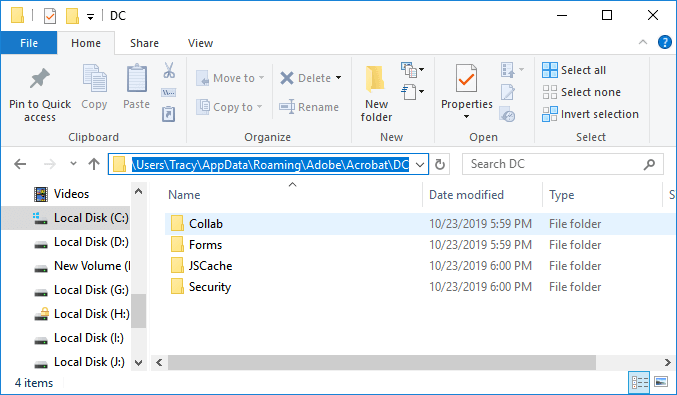
Step 2. Find the temporary files in the above location, and copy and paste these files to another location.
- Notice:
- The extension of these temporary files may not be the same as the original ones. It could be *.dat files or *.tmp files.
Step 3. Change the extension of the copied temporary files as *.pdf.
Step 4. Try to open the temporary files with Adobe Acrobat.
According to Adobe support, the temporary file is deleted if you close Adobe Acrobat (whether you save it or not). The only purpose of the temporary saves is to recover if Acrobat or computer crashes, power cut, etc. So if you didn't encounter a software or computer crash, you might not be able to recover unsaved Adobe Acrobat files through temporary files.
2. How to Recover Lost/Corrupted PDF Files
In addition to unsaved PDF files, another common data loss situation is that users lose saved files after system updates or virus attacks. Worse still, your files may be corrupted. If you find your PDF files are under the following conditions, then these files might get damaged.
- PDF file not readable
- The root object is invalid or missing
- Error opening document
- File damage or corrupt
- The viewer can't open it
- Error processing page
If you are stuck in this dilemma, please do not perform any operations that may cause file overwriting. Then check your Recycle bin to see if your lost files are in it. If the answer is negative, it is highly recommended you take advantage of data recovery software to recover the files.
EaseUS Data Recovery Wizard works well in many data loss scenarios. It supports users in recovering data deleted by antivirus, recovering files from formatted hard drives, recovering deleted files from the recycle bin, etc. EaseUS Data Recovery software can recover lost or corrupted PDF files in three steps.
Now download this software on your computer and have a try.
Step 1. Select a drive and start scanning
Launch EaseUS Data Recovery Wizard and hover over the partition where you lost data. This could be an internal hard disk, external disk, USB, or SD card. Then, click "Search for Lost Data".
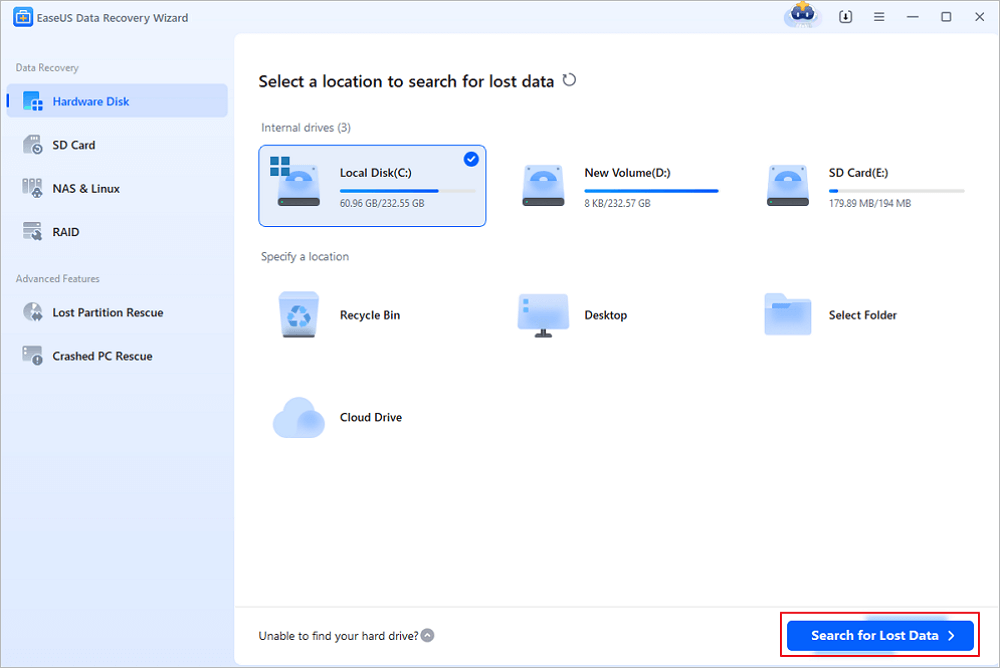
Step 2. Check and preview scanned files
Use the file format filter on the left or upper right corner to narrow the scan results until you find the files you need. Then, you can click the "Preview" button or double-click a file to preview its content, if you'd like.
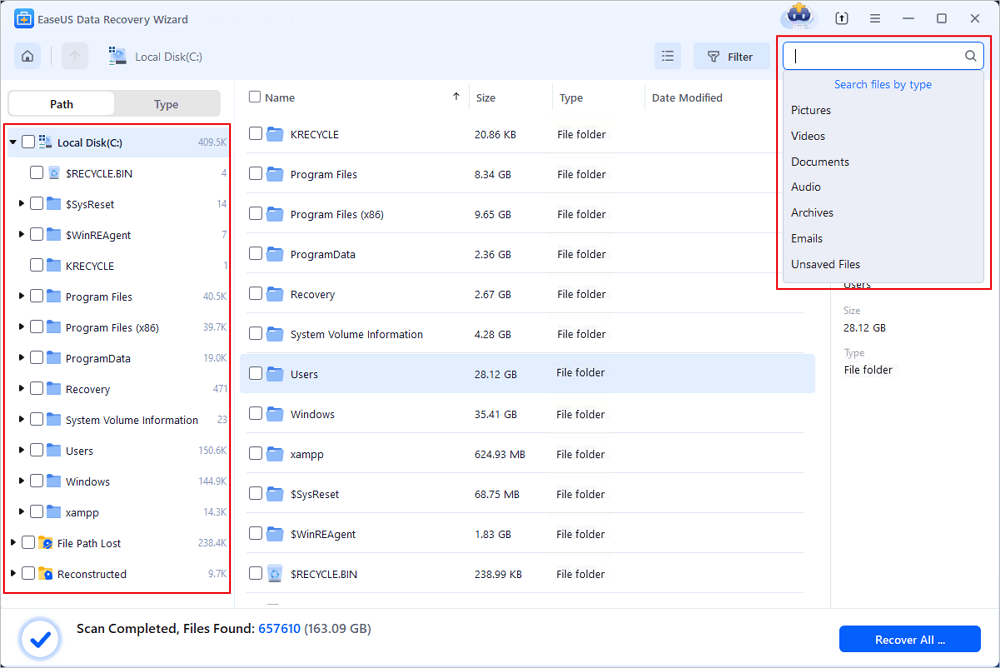
Step 3. Recover lost data to a secure location
Click the checkbox next to the file and click "Recover" to restore the lost data to your local storage or Cloud drive. We recommend that you do not store the recovered data on the disk where you lost it earlier.
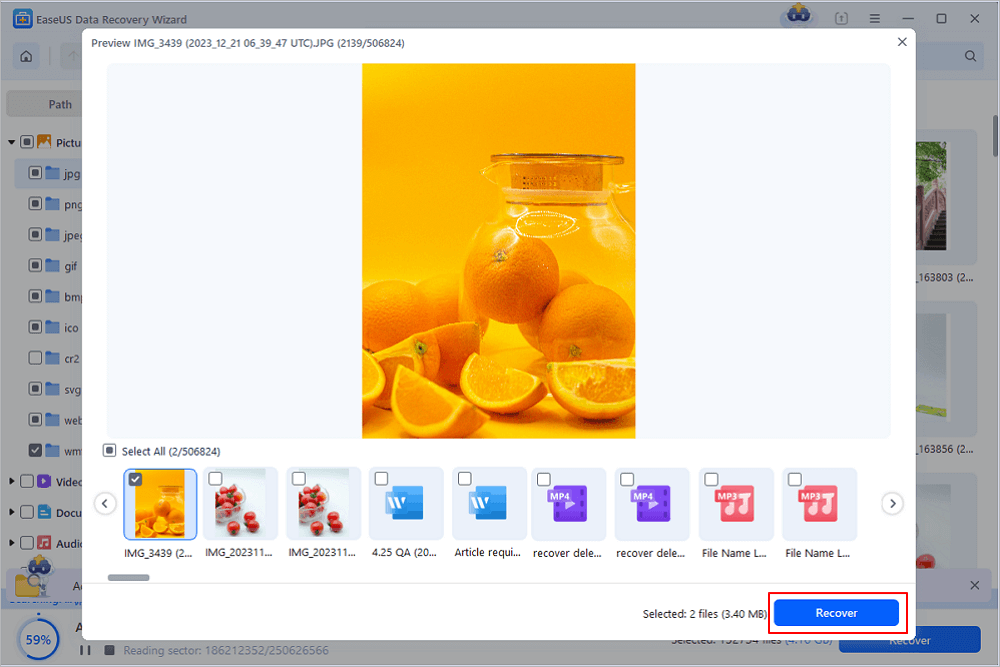
3. How to Repair PDF Application in Adobe
Despite file corruption, sometimes you cannot open or manage a PDF file because the Adobe Acrobat app is damaged. In this case, you need to repair the PDF application to solve the problem. Here are the two most common means to fix a damaged PDF application.
Method 1. Download Up-to-Date Application
First, uninstall the current version of Adobe Acrobat, then download and install the latest version of Adobe Acrobat/Reader on your computer.
Method 2. Check for Updates
To check for Adobe Acrobat updates, you need to launch the Adobe application > Click "Help" > Choose "Check for Updates".
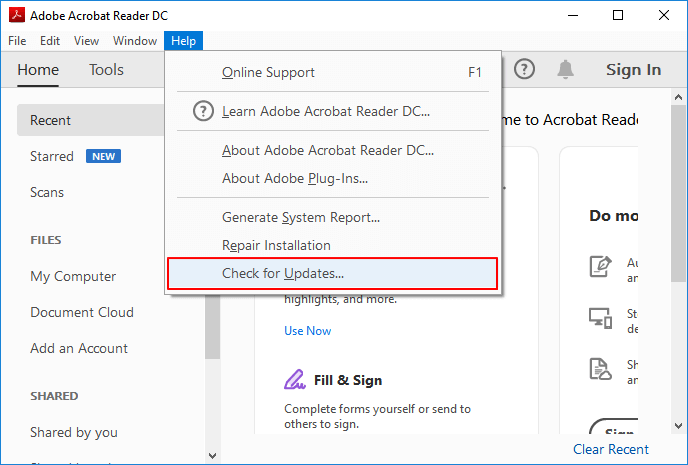
Method 3. How to Repair Corrupted PDF Files
EaseUS Fixo helps repair corrupt PDF documents stored on external storage media. It can also extract text, comments, labels, graphics, etc. from the PDF file.
Step 1. Download and launch Fixo on your PC or laptop. Choose "File Repair" to repair corrupted Office documents, including Word, Excel, PDF, and others. Click "Add Files" to select corrupted documents.
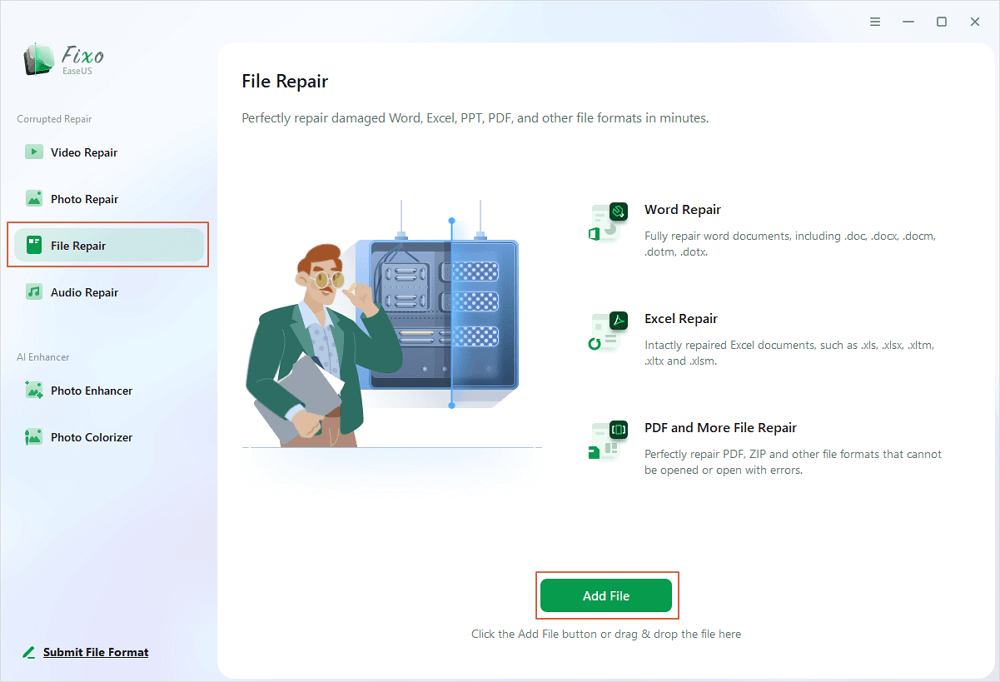
Step 2. To repair multiple files at once, click the "Repair All" button. If you want to repair a single document, move your pointer to the target file and choose "Repair". You can also preview the documents by clicking the eye icon.
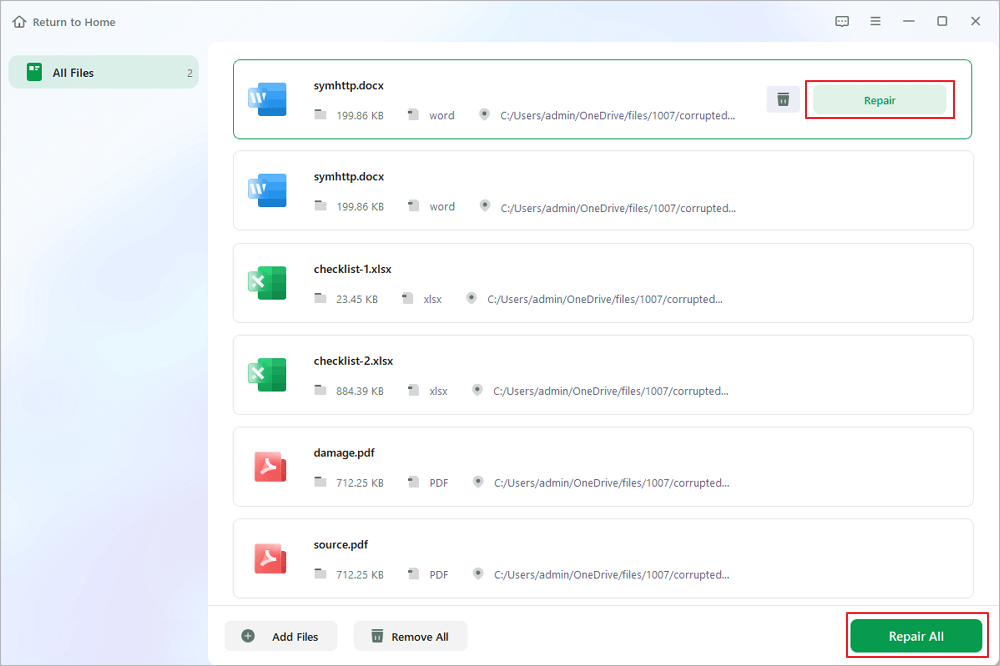
Step 3. Click "Save" to save a selected document. Select "Save All" to save all the repaired files. Choose "View Repaired" to locate the repaired folder.
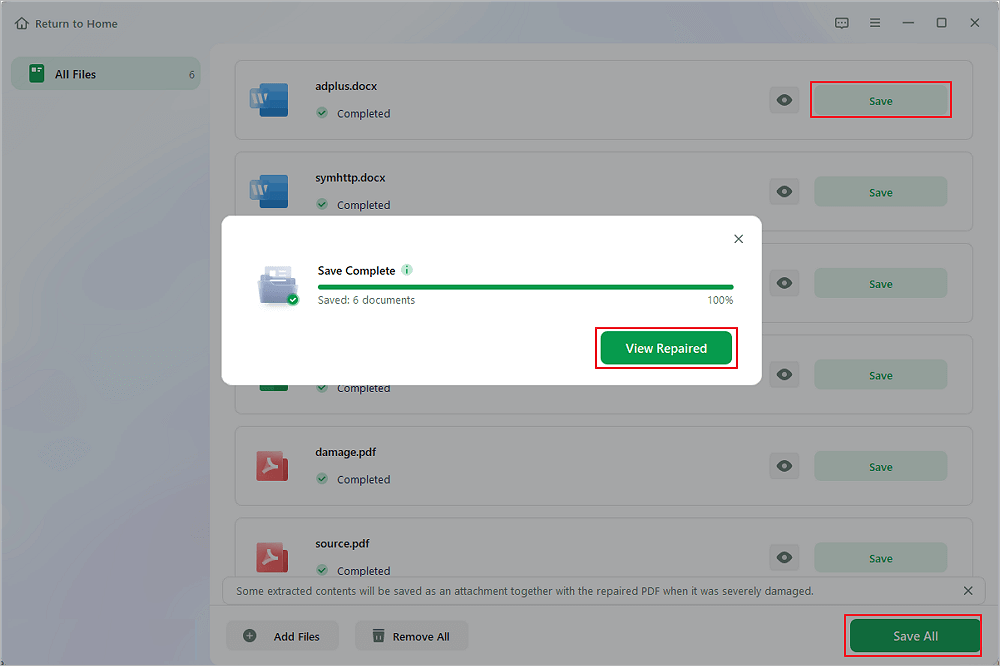
You can also watch this video below to learn more about repairing corrupted Word/Excel/PDF with EaseUS Fixo Document Repair. This method is in the fourth part, check the timeline to locate it quickly:
- 00:14 Method 1. Insert to a new Word document
- 00:38 Method 2. Use open and repair
- 00:55 Method 3. Default settings
- 01:30 Method 4. EaseUS Fixo Document Repair
What is the Difference between Adobe Acrobat and Adobe Reader
This article is mainly talking about how to recover unsaved Adobe Acrobat files. But Acrobat is not the only application in the Adobe family that can open PDF files. Another often used app is Adobe Reader. Since both of the two applications are able for users to manage PDF files, some users might want to know what the difference between them is. Let's check the functions of these two applications.
Adobe Reader: Read PDF files and perform fundamental tasks like allowing users to fill in form fields and add some highlights.
Adobe Acrobat: Create PDF files from other formats, edit them in various ways, add form fields, security settings, etc.
In other words, the main difference is that Adobe Acrobat does not only have all the features of Adobe Reader but much more, including the ability to create and edit texts and images in PDF documents. It is the more advanced version of Adobe Reader with added functionalities.
The Bottom Line
That's all about how to recover PDF files on a Windows PC. Generally speaking, you don't need to worry about your PDF file's safety as Adobe Acrobat autosaves all the files you edit. Even if you have encountered some desperate conditions which lead to data loss or file corruption, you can get back the PDF files with a data recovery tool like EaseUS Data Recovery Wizard. If you are interested in this tool, download it and have a try!
Was This Page Helpful?
Dany is an editor of EaseUS who lives and works in Chengdu, China. She focuses on writing articles about data recovery on Mac devices and PCs. She is devoted to improving her writing skills and enriching her professional knowledge. Dany also enjoys reading detective novels in her spare time.
Cedric Grantham is a senior editor and data recovery specialist of EaseUS. He mainly writes articles and how-to tips about data recovery on PC and Mac. He has handled 10,000+ data recovery cases and is good at data recovery of NTFS, FAT (FAT32 and ExFAT) file systems, and RAID structure reorganization.
Related Articles
-
Windows 11 Screen Goes Black Randomly? Find Solutions Here
![author icon]() Larissa/2025-07-04
Larissa/2025-07-04 -
Do You Have to Format A New SD Card? Latest Tips!
![author icon]() Tracy King/2025-07-04
Tracy King/2025-07-04 -
Game Stuttering on High-End PC [Why & How to Fix]
![author icon]() Larissa/2025-12-31
Larissa/2025-12-31 -
Laptop Turns Off When Unplugged - How to Fix?
![author icon]() Jerry/2025-07-04
Jerry/2025-07-04
EaseUS Data Recovery Services
EaseUS data recovery experts have uneaqualed expertise to repair disks/systems and salvage data from all devices like RAID, HDD, SSD, USB, etc.